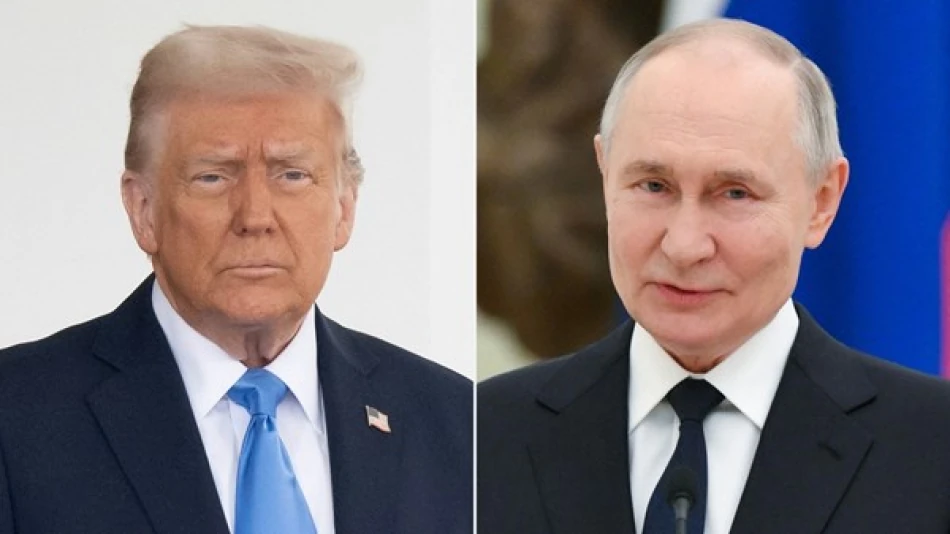
Kremlin Hints at Possible Putin-Trump Meeting, Fueling Speculation
Putin-Trump Summit in China Could Mark New Chapter in US-Russia Relations
The Kremlin has signaled openness to a potential meeting between Vladimir Putin and Donald Trump in China this September, coinciding with Beijing's 80th anniversary commemorations of World War II's end. This diplomatic possibility emerges as both leaders navigate complex geopolitical tensions, with the Ukraine conflict casting a long shadow over US-Russia relations and China positioning itself as a key mediator in global affairs.
Beijing as the Diplomatic Stage
Putin's planned visit to China in early September for the WWII anniversary celebrations provides an unexpected diplomatic opportunity. Kremlin spokesperson Dmitry Peskov told journalists that if Trump decides to visit China during this period, "theoretically, such a meeting cannot be ruled out."
The timing is significant. China will host a major military parade in Tiananmen Square on September 3rd, featuring advanced aircraft and weaponry displays. Chinese officials have confirmed that world leaders from multiple countries will attend, creating a high-profile international gathering that could facilitate informal diplomacy.
Strategic Implications for Global Power Dynamics
China's Growing Role as Diplomatic Facilitator
Beijing's hosting of both leaders would underscore China's evolving position as a neutral ground for superpower diplomacy. Unlike previous US-Russia summits held in European capitals or neutral venues like Geneva, a China-hosted meeting would symbolically elevate Beijing's status as a global diplomatic hub—a role it has increasingly sought since mediating recent Middle East peace agreements.
Ukraine Conflict as the Central Issue
The potential meeting comes against the backdrop of the ongoing Ukraine crisis, which began in February 2022 and has fundamentally reshaped US-Russia relations. While Putin and Trump have maintained phone contact throughout Trump's second term to discuss the conflict, face-to-face diplomacy could signal a shift toward more substantive negotiations.
For markets and geopolitical observers, such a summit would likely trigger significant speculation about potential sanctions relief, energy trade adjustments, and broader European security arrangements.
Historical Context and Precedent
The last Putin-Trump summit occurred during Trump's first presidency, with their 2018 Helsinki meeting generating considerable controversy. Since Trump's return to office, the two leaders have relied primarily on phone diplomacy, making a potential in-person meeting particularly noteworthy.
The WWII anniversary backdrop adds another layer of symbolism. Both Russia and China view themselves as key victors in that conflict, and using this historical moment for contemporary diplomacy would emphasize their partnership while potentially drawing the United States into a trilateral dynamic.
Market and Policy Implications
A Putin-Trump meeting in China would likely impact several key areas. Energy markets could see volatility as investors speculate about potential changes to sanctions regimes affecting Russian oil and gas exports. Defense contractors and technology companies might also react to signals about arms control discussions or technology transfer restrictions.
For European allies, such a summit would raise questions about US commitment to NATO unity and the sustainability of current Ukraine support levels. The choice of China as the venue would particularly concern European leaders who have grown wary of Beijing's growing global influence.
While no concrete plans have been announced, the Kremlin's public acknowledgment of this possibility suggests both Moscow and Washington may be exploring new diplomatic avenues. Whether this translates into substantive policy changes will depend on the complex interplay of domestic political pressures, alliance commitments, and the evolving situation in Ukraine.
Most Viewed News

 Layla Al Mansoori
Layla Al Mansoori






